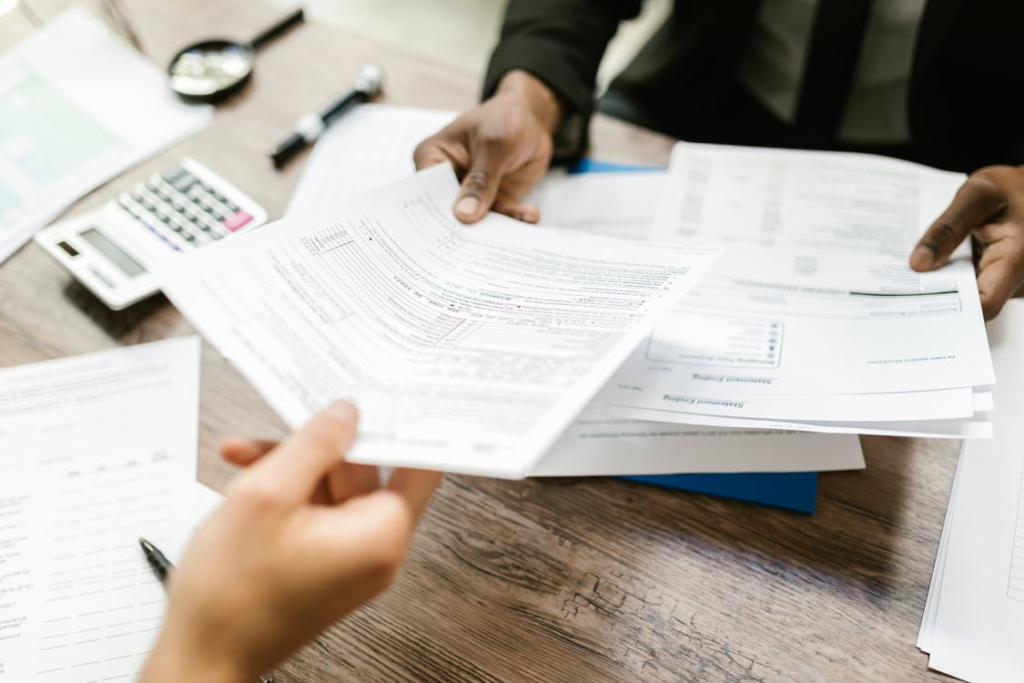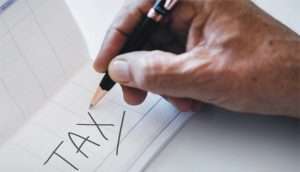Value Added Tax is a consumption tax levied on the inventory of products and services offered in the UK at every point, starting from raw materials and ending when the final retail purchase is made. Consumers ultimately pay the VAT, and buyers receive reimbursements at the earlier production stages for the previous VATs they paid.
VAT fraud is a common tax evasion form that can occur in various ways through planned activities. It includes charging customers the VAT amount but not accounting for it to the HRMC so that it can be pocketed without anyone knowing.
Some VAT fraudsters request cash and don’t issue request payments or invoices to someone other than the suppliers. Others utilise VAT numbers that are false or registered to other traders. It might be easier to understand how VAT fraud occurs if you calculate the percentage of the total cost.
According to Investopedia, if a product costs £200 with 15% VAT levied on it, the consumer will pay £30 to the trader. He will then keep the £200 and remit the remaining £30 to the government.
Fraudster traders extort intra-community VAT by making ill-conceived refund claims on a particular amount. These malicious people charge less than honest VAT registered dealers for certain commodities because of pricing advantages. They do this to undermine the tax system and drive honest merchants out of business.

The inevitable truth is that most organisations, unfortunately, don’t realise the dangers they’re exposed to until the ‘No Refund’ point passes. Any company can become an avid VAT extortion member, sometimes deliberately, while other times accidentally, without realising how much they could lose if they’re involved in such a case.
Merchants dealing with shady suppliers and legislators chasing down VAT fraudsters face similar challenges: VAT fraud schemes today have turned into complex operations run by clever malicious people. They’re difficult to catch and even harder to recover from. Here are some of the most notorious VAT fraud schemes you should know about to stay ahead of the curve.
The Carousel Schemes
Perhaps one of the most well-known VAT fraud schemes of all time involves fraudulent merchants importing VAT-free goods and selling them to companies controlled by known coconspirators who charge consumers the set VAT amount.
The business sells products through a series of unwitting traders, each liable for VAT. Gradually the goods are exported. In doing so, the first link in the chain disappears without the consumer-paid VAT charges being ever reported. The final link also disappears once the VAT associated with the tax agency has been reclaimed.
Fake or Missing Trader Fraud
Merchants often set up fictitious companies and register them for VAT to make false commodity sales and purchases. Then they disappear without paying HMRC the VAT levy.
This corridor misrepresentation trick is used by many malefactors who connect with ill-conceived businesses abroad to take action on their behalf.
The goal is to have solid grounds for VAT refund claims on fake export invoices to disappear quickly after making fast profits. It is often difficult for HMRC to hunt them because these fraudsters disguise themselves as associations with contact niceties and fake names.
Cash Misrepresentation ‘Mishaps’
Some organisations willfully accept cash instalments and offer small refunds to customers regularly when they agree to no VAT charges.
Since the change isn’t registered for VAT, the misrepresentation of cash harms the innocent general population as well as other compliant organisations.
The government loses money that could’ve been spent improving or creating public administration and foundations such as shared vehicles, schools, and medical clinics.

Deliberate Failure to Register
Businesses intending to make or sell taxable supplies in the UK, make distance sales in the region, or make relevant EU goods acquisitions may be liable to be registered for VAT.
When business owners entitled or liable for VAT registration deliberately fail to register, they can be penalised for committing fraud.
Even when the business isn’t registered and charges VAT on services or goods supplies but doesn’t account for the VAT to HMRC, it will also be considered fraud.
Inflated Refund Claims
This is another popular VAT fraud scheme used by malicious merchants to acquire invoices for purchases that were never made. The intent is to claim more refunds from tax agencies than they’re entitled to.
These traders often use fake invoices to file for claim refunds. These fake invoices act as evidence of the merchandise purchases made by the merchants on which they’re claiming VAT refunds. An extensive network of fraudsters exists where fabricated invoices are exchanged to defraud the government.
Underreported Purchases or Sales
Often, merchants conceal the actual sale amount from domestic markets to evade the VAT charge obligation. This type of fraud scheme is designed to enable these criminals to claim more credits or refunds than owed.
The scheme also boasts the natural potential of boosting the company of such merchants by encouraging patronage on account of relatively cheaper commodities it offers to the buyers looking to save every penny in this unprecedented global economy.

Online VAT Fraud
As a more recently rising trend, online VAT fraud involves online sellers failing to pay the right amount of VAT.
Since the consequences of such frauds have a rippling impact on society, digital marketplaces must take the responsibility to ensure every seller streamlines and displays a valid VAT number of the profiles visible to everyone at all times.
Failure to do so can lead the HMRC to take action against the individual seller and the marketplace itself. Here are some penalties you can avoid by maintaining compliance.
Potential VAT Fraud Penalties

Despite what many people think, HMRC has a stringent civil penalties policy and presses full criminal prosecution charges against VAT fraudsters. This ensures prompt results, forcing companies to pay what they owe.
Civil penalties by HMRC aren’t just a light tap on the wrist. The organisation holds substantial powers and can impose hefty fines, roll out confiscation or deprivation orders, and publicly name and shame individuals or businesses owing over £20,000.
They can also impose fines on and disqualify company directors personally for failing to fully cooperate with the HMRC investigations. The amount of the penalty that could be imposed depends on the value and type of the VAT fraud.
In the case of VAT credits and VAT payments, up to a 100% penalty of the evasion’s value can be charged on top of the repayment. The understated output tax is typically added to the overstated input tax to calculate the penalty. If the company makes a voluntary and unprompted disclosure to the HMRC, a significant penalty reduction is possible in some situations.
If the fraud is deemed to be of a malicious nature, there’s no limit on the penalties that could be charged. In addition, the courts can also issue custodial sentences of up to 8 to 10 years in jail.
However, the criminal penalty may be pleaded depending on the degree of involvement, previous convictions, attempts to conceal or expose evidence, and the level of intended or actual harm caused.
Mental health, guilt admission, attempts to implicate others falsely, and other factors are also considered by the judge when deciding the criminal penalty for VAT fraud.
All You Need to Know About VAT Returns

From the date your business was registered for VAT, you will be obliged to charge the levy on taxable sales, which would be the output VAT.
Businesses might be able to reclaim VATs charged on business purchases and some expenses, often referred to as input VAT. When the accounting period ends, as a business, you’ll need to pay HMRC the difference between the input and output VAT.
This can be done using a VAT return form that includes various items, such as the total purchases and sales. VAT amount owed, reclaimable VAT amount, and the VAT refund from HMRC.
The rules of navigating VAT returns evolve quickly, making it complicated to stay on top of your game. For more information, connect with experts at IBISS & CO. They’ll help you with the entire process while guiding you at each step so that you can avoid penalties when you understand every important detail of your VAT tax return.
Remember that a VAT return needs to be submitted even if you don’t have to reclaim or pay any VAT in the fiscal year.
Till When Do VAT Returns Need to Be Completed?
Business owners must complete and submit their VAT returns a month and seven days after each VAT period ends. The period occurs quarterly, meaning you will need to submit VAT returns four times a year.
Tax specialists at IBISS & Co. can help you stay updated with your VAT tax returns and due payments so that you don’t need to go through the hassle yourself. In the same way, they can also help you calculate and file the VAT returns. But to give you a basic idea, here’s how VAT return is calculated.

VAT Return Calculation and Filing: An Overview
Although this slightly differs for businesses included in flat rate schemes, VAT returns can generally be calculated by comparing the difference between the VAT on sales and VAT from purchases. If the number is positive, you will need to pay the outstanding amount to HMRC. If not, they will refund that amount.
It’s important to make a note of the VAT you’ve paid on all expenses and purchases incurred by your business. Practically, it’s equally important to note all the VAT collected on sales. VAT collected minus VAT paid equals VAT payment or refund, depending on whether the result was positive or negative.
Once you know the figures, you will need to file the VAT return online. You’ll need an online VAT account and a VAT number to proceed, both of which experts at IBISS & Co. can help you with. Alternatively, we suggest letting their chartered tax accountants handle everything so that they can help you mitigate the chances of receiving the notification of an HMRC investigation.
Navigating HMRC Investigations
Having concerns over the accuracy of VAT returns could mean you’re worried about HMRC notifying you regarding the launch of a VAT investigation. Most of the time, HMRC will inform you about the VAT investigation being launched.
However, sometimes they often carry out some preliminary inquiries on their own. Unless your business was chosen randomly, chances are your VAT return raised certain concerns that triggered the investigation.
The investigation could either be a full investigation or an aspect investigation, both of which will require you to partner with experienced professionals. Aspect investigations refer to HMRC wanting to check a particular business area.
In case they uncover more widespread concerns, the situation may expand an aspect investigation into a full-blown inquiry. Full investigations mean the HMRC can inspect every aspect of your record-keeping.
Need Advice? IBISS & Co. is Just a Call Away!

If you’re struggling with VAT payments or have received HMRC notice regarding penalties for mistakes or interest charged on delayed payments, schedule a consultation with IBISS & Co.’s tax advisors in the UK.
Due to their consistent dedication to offering the greatest accounting, tax, and business advising services, they have become one of the top accounting firms in the UK.
Their team of highly skilled tax accountants possesses knowledge that will prove beneficial across a variety of industries.
Their tax specialists can also assist you with your non-resident landlord self-assessment, corporation tax, capital gains tax, property taxes and tax returns, business and tax issues, inheritance tax planning, and more.
They have extensive experience handling some of the trickiest tax problems.
They have worked with big and small businesses trying to survive in the current economic environment.
Your business is in good hands with their professional services, especially if you’re looking for a professional accounting firm in London that can lawfully minimise your tax liability and maximise your financial assets.
Give them a call or email them to get started.




